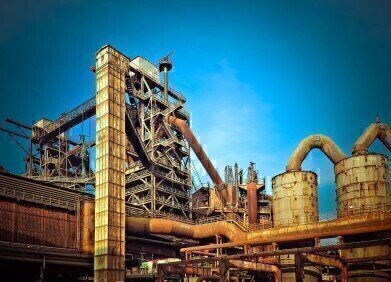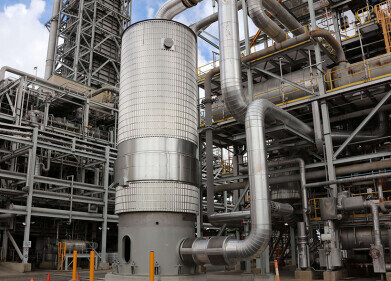Air Clean Up
How Does Industry Contribute to Climate Change?
Jun 23 2021
In the words of revered naturalist David Attenborough, climate change is “the biggest threat to security that modern humans have ever faced”. Elevated temperatures, melting polar ice caps, rising sea levels and more extreme weather events threaten the way we live our lives – and even the very resources we depend upon for our survival.
As one of the biggest contributors to manmade climate change, industrial companies must do their part to clean up their act and reduce their greenhouse gas emissions as much as possible. But which industries in particular are among the biggest culprits? And how exactly do their activities exacerbate this existential world threat? Here’s a breakdown of the most damaging industries on the planet in terms of climate change.
Energy
The electricity and gas which we use to light and heat our homes are created by the energy industry, with fossil fuels still the preferred choice of fuel source. However, oil and gas are both finite resources with an outsized carbon footprint, while coal-fired plants have been linked directly to extreme weather events, as well as emitting more damaging gases than either of their aforementioned counterparts. As such, the energy industry could benefit from transitioning to sustainable alternatives such as wind, solar and wave.
Metalworks and concrete production
The production of metals such as iron, steel and aluminium are cumulatively responsible for over 5% of all greenhouse gas emissions, according to the latest figures provided by the World Resources Institute (WRI). That’s because fossil fuels must be combusted in order to heat iron ore to temperatures in excess of 1,500°C to create steel, resulting in significant emissions. Meanwhile, the creation of concrete incurs another 5% of emissions, due to the chemical reaction (and the by-products it creates) necessary to convert limestone into concrete.
Transportation
The transportation industry contributes an estimated 14.3% of all greenhouse gas emissions, with the majority of that (10.5%) coming from road transport. Passenger vehicles are a particularly problematic culprit, with tailpipe emissions negatively impacting local air quality in urban epicentres and exacerbating the climate change issue at the same time. It’s for that reason that improving air quality and reducing transport-related pollution has long been a priority for governments in the UK in beyond, with several initiatives (such as a transition to electric vehicles, car-free days and no-go zones) all being trialled to address the issue.
Agriculture
Agriculture is not far behind transportation in terms of the emissions it generates, with the WRI estimating farming is responsible for 13.8% of all greenhouse gases pumped into the atmosphere each year. In particular, activities that are associated with the rearing of livestock and dairy cattle are believed to be especially damaging, since these incur high levels of methane emission. Methane does not persist for as long in the atmosphere as carbon dioxide, but it can be up to 86 times more potent at trapping heat in the short term, which is why it’s become such a hot topic among environmentalists of late.
Events
IWA World Water Congress & Exhibition
Aug 11 2024 Toronto, Canada
Aug 25 2024 Stockholm, Sweden and online
Sep 03 2024 Mexico City, Mexico
Sep 03 2024 Mexico City, Mexico
Sep 03 2024 San Diego, CA, USA














